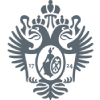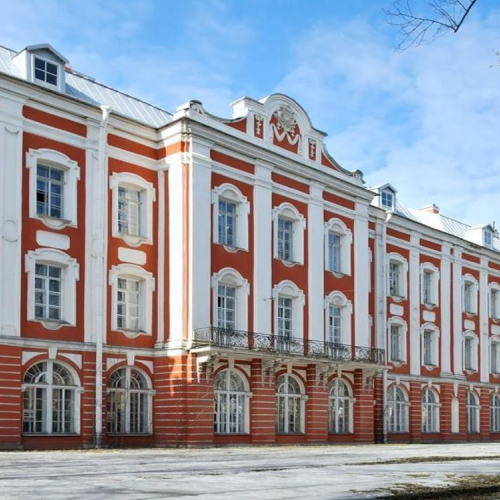7-9 Universitetskaya Embankment, St Petersburg 199034, Russia
Career Counselling

Saint Petersburg State University is the oldest institution of higher learning in Russia, with a glorious history dating back to 1724. With 26,000+ students, of whom more than 20% are from countries other than Russia, it is the most popular Russian University for international applicants. It has two campuses in the city of St. Petersburg; both are notable for their scenic beauty, historic academic buildings, and sports and cultural facilities.
Academic and research activities at the University are divided into 18 Faculties (Biology, Oriental Studies, ...
| Establishment year | 1724 |
| Total Students | 26,000 (full time in degree programs) |
| International Students | 5,400+ |
| QS World University Rankings 2024 | =315 |
| Campus Size | N/A |
| Total Number of Campuses | 2 (Vasilyevsky Island and Peterhof) |
| University Website | https://english.spbu.ru/ |
| No. of Schools and Divisions | 18 Faculties, 7 Institutes, and 3 Schools |
| Nobel Prize Winner Alumni | 8 |
| No. of Education Programs | 505 (UG + PG) |
| Student to Faculty ratio | 5.5:1 |
Saint Petersburg State University offers undergraduate and postgraduate courses through 18 Faculties and 7 Institutes.
Saint Petersburg University has 7 Institutes:
There are three Schools at SPbU:
Other Academic Units include:
International applicants to undergraduate programs at SPbU must hold a recognized high school degree or diploma. They must satisfy all the academic excellence requirements and prerequisite subjects that are mandated by their courses of interest. For courses that are taught in Russian, the applicant must be fluent in the language (at least Level B1); if the medium of instruction is English, the candidate must submit TOEFL or IELTS scores if he or she is not from a country where the mother tongue is English.
Postgraduate international applicants must satisfy similar criteria. Candidates applying to Master’s courses at SPbU must submit a valid Bachelor’s degree from a reputable University with transcripts certifying academic excellence. Applicants to PhD courses must have a Master’s degree from a recognized university along with a record of research achievement or journal publication.
The application and admission process for international students varies according to whether the applicant wishes to apply for a Russian Government Scholarship place or a full fee paying seat.
Applicants to Fee Paying places at SPbU must start by creating an Applicant Personal Account on the University’s website. The application form within this account is to be filled out, and all documents required must be uploaded. These include scans of a valid international passport, academic transcripts, degree certificates, additional material (e.g. a portfolio) that may be required by certain programs, language proficiency certificates, and recent photographs. Once the application is submitted, the University will get in touch with the shortlisted candidates to schedule further selection procedures. Applicants who pass the online entrance tests will be sent a contract letter by the University. This is the final step in selection; once the invitation is signed, it can be used to apply for a Russian visa, after which the candidate can pay the first year's fees, arrive at the University, and start classes. The whole process typically happens between May and August every year.
While filling out the application form, candidates must be careful to apply to a maximum of three different programs.
The application procedure for Scholarship places is slightly different. The timelines are more urgent, with scholarship applications typically submitted two to three months before fee paying applications. In addition, Russian Government Scholarship applications are made to the relevant Ministry via the Russian Embassy in the home country of the applicant. The documents required are also larger in number, with certificates of health and good character needed. Additional materials that may support the application are also encouraged, with competition certificates, research experience, published papers, and sports excellence records increasing the chance that the scholarship will be awarded. Candidates who are chosen by the Ministry will then be contacted by the University for further admission formalities.
Two important differences in the application process are that Scholarship candidates need to complete and submit essays and a motivation letter. These are important because the scholarship is highly selective; only about 5% of the international students at SPbU earn this flagship award.
Tuition fees for international students at SPbU vary widely according to the type of program, and the Scholarship status of the applicant. Data on the annual tuition fees for Bachelor's, Master's, and PhD courses can be found on the website of the University, within individual course pages.
The cost of accommodation for international students at SPbU varies widely according to the type of seat. For those who are enrolled in Government Funded Places, the room cost is only 350 rubles per month, which comes to 3,500 rubles (~USD 43) per year, assuming that ten months are spent on campus. For Full Fee Paying Places, the accommodation cost is 1,120 rubles per month, or approximately 11,200 rubles per year. Students who are at the University on short term exchange programs usually pay 4,890 rubles per month for board and lodging.

Saint Petersburg State University has two campuses within the city, with a branch planned to be opened in Uzbekistan.
The Student Council at SPbU is an elected body that represents the interests of the students in all discussions with the University leadership. It also organizes many academic and extracurricular events, and coordinates the activities of the student clubs on campus.
More than 300 events are organized at Saint Petersburg State University on an annual basis. The International Festival and the Spring and Winter Balls see the whole student community come together to celebrate diversity. Concerts are a unique feature of life at the University, with jazz, symphony, choral, and rock performances. There are also regular art festivals organized by students, and competitions in intellectual pursuits like board games and chess. Student organizations also conduct heritage guided walks of the historic areas of the city.
Student volunteering is another important feature of life at Saint Petersburg University. These organizations participate in community social work events like cleaning up lower income areas of the surrounding city regions, visiting orphanages and welfare locations, and help conduct events within the University.
Sports clubs are also active at SPbU, with over 20,000 students taking part in high level competitions in more than 22 sports every year. Some of the popular sports include basketball, football, rugby, rowing, mountaineering, yachting, boxing, athletics, and biathlon. The best athletes at the University have gone on to win laurels at the national and international levels.
In addition to recreation centers, SPbU is unique in having access to three health resorts. The Horizon Healthcare Resort is located on the coast of the Black Sea. The Universitetsky health and recreation complex has billiards, swimming, and skiing facilities available to visitors. The Healthcare Center within the University allows students to rest and recuperate; it also serves as a medical complex.
The University has 21 dormitories, out of which 12 are located on the Petrodvortsovy campus. It can accommodate more than 13,000 students in these Halls of Residence; international students are, therefore, assured of finding reasonably priced living options. These are well equipped with all the necessities, including high speed internet access, shopping outlets for essential items, laundry amenities, canteens, cafes, ATMs, and gyms and fitness areas.
As a precursor to finding full time employment after graduation, the University organizes several levels of practical experience for its students to improve their employability and career prospects.

Practical Training is a part of the curriculum, and allows students to gain a deeper understanding of how things work in the real world, and to gain skills that will help them become more practically oriented in their studies.
In addition to active sports and cultural clubs and student organizations, SPbU also provides students with state of the art facilities to pursue their extracurricular interests. Each of the 21 Halls of Residence has a fitness center, and both campuses have several sports complexes where students can access fitness, cardio, weight training, and aerobics rooms. Outdoor sports are also encouraged, with stadiums, football grounds, track and field areas, and tennis courts. These world class facilities have allowed students of the University to excel at national and international sports competitions for almost three centuries.
Internships are organized on a regular basis during the vacations to ensure that students can translate their theoretical knowledge into practical results through the University's partnerships with top companies and research organizations.
Just prior to the completion of the degree, students participate in the pre-graduation practice, which is an intensive project undertaken within the industry. It allows them to test whether they are ready for a career in their chosen field, from both an aptitude and long term interest point of view.
There are five categories of pre-graduation practice:
The flagship funding option for foreign students at Saint Petersburg State University is the Russian Government Scholarship. This prestigious award is open to a maximum of 300 students across all disciplines and departments, and is awarded based on academic and extracurricular excellence.
The benefits of the Russian Government Scholarship are many: selected international awardees enjoy a full tuition fee waiver, access University accommodation at a reduced price, and are given a monthly stipend to cover other living costs.
Applications can usually be submitted between February and June every year. Four main factors are taken into consideration when recommending international applications for this award: academic achievements, extracurricular excellence (sports, cultural, and volunteer activities), quality of application essays, and sincerity and relevance of the motivation letter.
Documents submitted during this process must be certified by the relevant authorities in the applicant’s home country. They must also be translated into Russian. Finally, each identification and academic document must be notarized by a Russian official. This is usually done via the Russian Embassy, but it can also be done after the student arrives in St. Petersburg.
